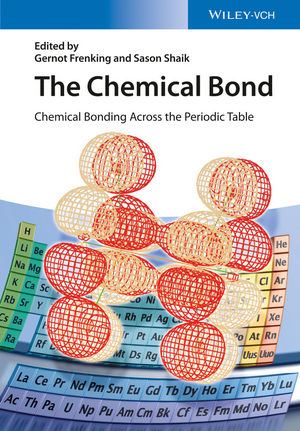| Book Name: | [PDF] Early Responses to the Periodic System by Kaji, Kragh, and Palló |
| Category: | Inorganic Chemistry |
| Free Download: | Available |

Book Description:
The reception of the periodic system of elements has received little attention among scientists and historians alike. While many historians have studied Mendeleev’s discovery of the periodic system, few have analyzed the ways in which the scientific community perceived and employed it. American historian of science Stephen G. Brush concluded that the periodic law had been generally accepted in the United States and Britain, and has suggested the need to extend this study to other countries.
In Early Responses to the Periodic System, renowned historians of science Masanori Kaji, Helge Kragh, and Gábor Palló present the first major comparative analysis on the reception, response, and appropriation of the periodic system of elements among different nation-states. This book examines the history of its pedagogy and popularization in scientific communities, educational sectors, and popular culture from the 1970s to the 1920s. Fifteen notable historians of science explore the impact of Mendeleev’s discovery in eleven countries (and one region) central to chemical research, including Russia, Germany, the Czech lands, and Japan, one of the few nation-states outside the Western world to participate in the nineteenth-century scientific research.
The collection, organized by nation-state, explores how local actors regarded the new discovery as law, classification, or theoretical interpretation. In addition to discussing the appropriation of the periodic system, the book examines meta-physical reflections of nature based on the periodic system outside the field of chemistry, and considers how far humans can push the categories of “response” and “reception.” Early Responses to the Periodic System provides a compelling read for anyone with an interest in the history of chemistry and the Periodic Table of Elements.
Early Responses to the Periodic System
Author(s): Masanori Kaji, Helge Kragh, Gabor Pallo
Publisher: Oxford University Press, Year: 2015
ISBN: 0190200073
[PDF] Early Responses to the Periodic System by Kaji, Kragh, and Palló Table Of Contents
Introduction —
The early response to Mendeleev’s Periodic System in Russia / Masanori Kaji and Nathan Brooks —
The periodic system and its influence on research and education in Germany between 1870 and 1910 / Gisela Boeck —
British reception of periodicity / Gordon Woods —
Mendeleev’s periodic classification and law in French chemistry textbooks / Bernadette Bensaude Vincent and Antonio Garcia Belmar —
Nationalism and the process of reception and appropriation of the Periodic System in Europe and the Czech Lands / Soňa Štrbáňová —
When a daring chemistry meets a boring chemistry : the reception of Mendeleev’s Periodic System in Sweden / Anders Lundgren —
Reception and early use of the periodic system : the case of Denmark / Helge Kragh —
Ignored, disregarded, discarded? On the introduction of the Periodic System in Norwegian periodicals and textbooks, c. 1870-1930s / Annette Lykknes —
Chemical classifications, textbooks, and the periodic system in nineteenth-century Spain / José Ramón Bertomeu-Sánchez and Rosa Muñoz-Bello —
Echoes from the reception of periodic classification in Portugal / Isabel Malaquias —
Popular science, textbooks, and scientists : the periodic law in Italy / Marco Ciardi and Marco Taddia —
Chemical classification and the response to the periodic law of elements in Japan in the nineteenth and early twentieth centuries / Masanori Kaji.









![[PDF] Draw Buildings and Cities in 15 Minutes Draw Buildings and Cities in 15 Minutes pdf](https://www.freepdfbook.com/wp-content/uploads/2021/06/Draw-Buildings-and-Cities-in-15-Minutes-218x150.jpg)








![[PDF] Digital Image Processing An Algorithmic Introduction Using Java Digital Image Processing An Algorithmic Introduction Using Java](https://www.freepdfbook.com/wp-content/uploads/2022/06/Digital-Image-Processing-An-Algorithmic-Introduction-Using-Java.jpg)




![[PDF] 43 Years JEE ADVANCED + JEE MAIN Chapterwise & Topicwise Solved Papers 43 Years JEE ADVANCED (1978-2020) + JEE MAIN Chapterwise & Topicwise Solved Papers Physics PDF](https://www.freepdfbook.com/wp-content/uploads/2022/03/43-Years-JEE-ADVANCED-1978-2020.jpg)

![[PDF] Problems in Physical Chemistry for JEE (Main & Advanced) Problems in Physical Chemistry for JEE (Main & Advanced) Free PDF Book Download](https://www.freepdfbook.com/wp-content/uploads/2022/03/Problems-in-Physical-Chemistry-for-JEE-Main-Advanced.jpg)
![[PDF] Engineering Physics (McGraw Hill)](https://www.freepdfbook.com/wp-content/uploads/2021/05/bafc8c2685bb6823a9c56134f7fba5df.jpeg)

![[PDF] Engineering Chemistry By Shashi Chawla](https://www.freepdfbook.com/wp-content/uploads/2022/05/Theory-And-Practicals-of-Engineering-Chemistry-By-Shashi-Chawla-free-pdf-book.jpeg)
![[PDF] Chemistry: An Introduction to Organic, Inorganic & Physical Chemistry Chemistry: An Introduction to Organic, Inorganic & Physical Chemistry](https://www.freepdfbook.com/wp-content/uploads/2022/04/Chemistry-An-Introduction-to-Organic-Inorganic-Physical-Chemistry.jpg)
![[PDF] Essentials of Physical Chemistry Essentials of Physical Chemistry Free PDF Book by Bahl](https://www.freepdfbook.com/wp-content/uploads/2022/04/Essentials-of-Physical-Chemistry-bahl.jpg)
![[PDF] Biological control of plant-parasitic nematodes: soil ecosystem management in sustainable agriculture Biological control of plant-parasitic nematodes: soil ecosystem management in sustainable agriculture](https://www.freepdfbook.com/wp-content/uploads/2022/05/Biological-control-of-plant-parasitic-nematodes-soil-ecosystem-management-in-sustainable-agriculture.jpg)
![[PDF] Human Anatomy: Color Atlas and Textbook Human Anatomy: Color Atlas and Textbook Free PDF Book](https://www.freepdfbook.com/wp-content/uploads/2022/05/Human-Anatomy-Color-Atlas-and-Textbook.jpg)
![[PDF] Concepts of Biology Book [Free Download]](https://www.freepdfbook.com/wp-content/uploads/2022/05/Concepts-of-Biology.jpg)
![[PDF] Essentials of Biology [Free Download] Essentials of Biology Free PDF BOok Download](https://www.freepdfbook.com/wp-content/uploads/2022/05/Essentials-of-Biology-Free-PDF-Book-Downlaod.jpg)
![[PDF] Human Biology Book [Free Download]](https://www.freepdfbook.com/wp-content/uploads/2022/05/PDF-Human-Biology-Book-Free-Download.jpg)